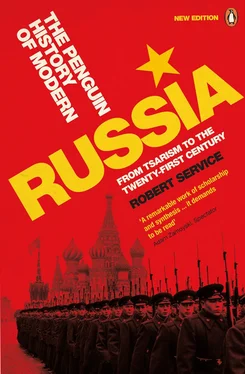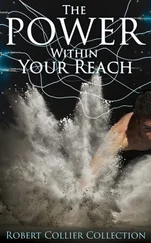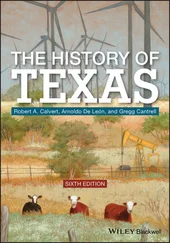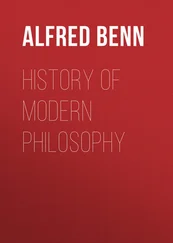monarchy, 7, 18–19, 32, 45–6; see also Nicholas II, Tsar
Montgomery, Field Marshal Bernard Law, 1st Viscount, 272
Morocco, 24
Morozov, Pavlik, 245
Moscow: 1905 uprising, 15; capital moved to (1918), 78; underground railway (Metro), 192, 199, 247; rebuilding, 204, 323, 351; in World War II, 261–2; octocentenary celebrations (1948), 323; unrest under Gorbachëv, 494; ‘White House’ (RSFSR Supreme Soviet building), 500–502, 524
Moscow News (journal), 449
Moskalenko, Marshal Kiril S., 333, 372
Moslems see Muslims
Mozambique, 399
Mukden: Russian defeat (1905), 14
‘multipolarity’, 554
Murakhovski, Vsevolod, 440
Murmansk, 102
Muslims : in central Asia,
84; and nationalism, 131; Turkey and, 133; Bolshevik tolerance of, 135; clerics persecuted, 203–4; and Khrushchëv’s repression, 369–70
Musorgski, Modest, 11
Mussolini, Benito, 140, 171, 235, 293
Mzhavanadze, V.P., 391
Nagorny Karabakh, 133, 424, 457, 469
Nagy, Imre, 343
Nakhichevan, 133
Napoleonic Wars, 1, 10, 134
Narkomnats
see People’s Commissariat of Nationalities narodniki (populists), 17–19
Nashi , 557
Nasser, Gamal Abdel, 352, 389
nationalism (non-Russian), 40, 83–5, 113–14, 130–32, 200–202, 208, 366–9, 390–91, 423, 456–8, 478, 481, 513
nationalism (Russian),
11–12, 23, 46, 115, 129–30, 134, 200–202, 205–8, 235, 246–7, 314, 390, 478, 480, 497, 536, 560–1
‘national programmes’ (Putin and Medvedev), 558
nationalities and minorities: under revolutionary government, 69; Soviet treatment of, 132–4; identification of, 207–8; deportations, 276–7, 284, 300, 329, 339, 367; in World War II,
283–4; cultures downgraded,
316; Khrushchëv on,
362–3; and birth rate,
422–3; growing dominance,
424; Gorbachëv on,
455–6; protest demonstrations,
457–8nationalization
see state economic ownership
NATO
see North Atlantic Treaty Organization
Nature (London journal), 416
navy: pre-revolutionary discontent in, 37–8; forms revolutionary committees, 56; sailors granted direct action, 69; demobilization, 86; unrest, 119, 122; Kronstadt mutiny (1921), 125, 127
Nazarchuk, Alexander, 534
Nazi party, 171, 178, 187, 235
Nazi-Soviet Non-Aggression Treaty (1939), 256, 284, 457, 481
Neivola (Finland), 50
Neizvestny, 415
Nepenin, Admiral A.I., 37
nepmen, 144–5, 149, 163
Neumann, Franz, 187
New Economic Mechanism (Hungary), 385
New Economic Policy (NEP): introduced, 125–8, 146; and national expansion, 132–3; and dissentient thought, 138; and innovation, 141; reintroduces capitalism, 144–5, 149, 150; effects of, 149, 186; aims, 150; Party disputes over, 150, 158, 173–4; Trotski criticizes, 151, 155–6; prevails against United Opposition, 162; Stalin discontinues, 164, 169, 172–3, 190; Gorbachëv praises, 454
newspapers see press
Nicholas II, Tsar: notoriety, 1, 3; and war with Japan 3; supports industrialization, 4; questionable loyalty to, 12; supports Russian nationalist organizations, 12; represses minorities, 13; and 1905 revolution, 14–17; and popular discontent, 14; lacks respect, 20–22; attitude to Duma, 21–2, 29, 32; and constitutional changes, 23; abdicates, 26, 33; wartime opposition to, 30–33; complacency over labour movement, 32; hated by Bolsheviks, 48; in Tobolsk, 53–4; with family under house arrest, 60; and soviets, 60; and non-Russians, 84; murdered with family, 107; and wage levels, 143; and foreign loans, 163; historical denunciation of, 206; denounces politicking, 522; obstructs civil society, 566–7
Nikitin, A.M., 57
Nikolaev, Leonid, 214
Nikon, Patriarch, 10
Nixon, Richard M., 353, 398
Niyazov, Saparmurad, 503
NKGB (People’s Commissariat of State Security), 297; see also KGB
Nkrumah, Kwame, 389
NKVD (People’s Commissariat of Internal Affairs): and Cheka, 69; absorbs OGPU, 214; Yezhov heads, 218; Stalin’s links with, 219; in Great Terror, 221–2, 228–9; and Party purges, 221; infiltrates émigré groups, 231; status, 232; rivalry with Red Army, 233; runs special shops, 238; Beria heads, 242; informers, 245; in annexed territories, 258; and deportation of nationalities, 276; reduces diet in Gulag, 278
Nobel, Alfred, 4, 121
Noga (Ukrainian policeman), 287
nomenklatura: established, 148; numbers, 236; conditions, 237, 244, 321; children rebel, 370; and market opportunities under Yeltsin, 513, 515; under privatization, 538–9
Norilsk, 335, 472
North Atlantic Treaty Organization (NATO), 312, 330, 398, 537, 550, 560–1
Norway: Germans occupy, 258
Novaya gazeta (newspaper), 556
Novo-Ogarëvo agreement see Union Treaty
Novocherkassk, 364, 372, 385, 409
Novosibirsk, 431, 440; Institute of Economics, 450
Novotný, Antonin, 386
Nuclear Non-Proliferation Treaty (1969), 388
nuclear power stations: accidents, 445
nuclear weapons: development of, 301, 304, 311, 318, 336, 346, 353–4, 374, 432; Gorbachëv proposes destruction of, 465
Obama, Barack, 562
Observer (British newspaper), 341
‘October Events’ (1993), 525–6
October Manifesto (1905), 14, 16
October Revolution see revolution of October 1917
Octobrists, 16, 22, 25
Odessa, 102
Ogonëk (magazine), 449, 480
OGPU (United Main Political Administration): succeeds Cheka, 131; undermines Church, 135; and intelligentsia, 137; and industrial unrest, 144; and United Opposition, 161–2; and Stalin’s policies, 171; and Shakhty engineers, 175; suppresses industrial discontent, 184; acts against political opponents, 185, 188, 211; and Terror, 210; as power-base, 211; power diminished, 214; see also NKVD
oil: pre-World War I, 4; and foreign concessions, 121, 126; exports, 159, 466, 535; world price rise (1973), 399, 408; state subsidies for, 525; motive for attacking Chechnya, 533; after 1991, 536, 553, 561
Okhrana (political police), 17–18, 20–21, 38–9, 70, 72, 89
Okudzhava, Bulat, 365
Old Believers, 10, 135
Olympics, Beijing, 559
one-party state, 119, 123–4, 161, 169, 239, 406, 476, 485, 488, 553
‘oligarchs, the’, 532, 538, 548–9, 561, 563
‘Orange Revolution’ (Ukraine), 555
Ordzhonikidze, Sergo: beats up opponent, 152; and Stalin’s succeeding Lenin, 155; supports Stalin’s policies, 171, 175; and effects of forced collectivization, 181; protects managers and engineers, 194; Stalin attacks, 195, 211; conflict with Molotov, 213; challenges Stakhanovism, 217; isolation, 218–19; death, 219
Organization of Petroleum-Exporting Countries (OPEC), 399
Orgburo, 111, 119
Orthodox Church: divisions in, 10–11; and national values, 10–11; avoids political involvement, 54; separated from state, 90, 94; resists communists, 93–4; persecuted, 116, 135–6, 203–5; and Russian identity, 134–5; and ‘Living Church’, 135; excluded from historical writings, 206; tolerated in World War II, 281–2; under German occupation, 287; Stalin subdues, 317; Khrushchëv attacks, 369; millennium, 476; restrictions relaxed under Gorbachëv, 476; under Yeltsin, 538, 544, 557
Osetiya, North and South, 521
Ostministerium (German), 287
Our Home’s Russia ( Nash Dom-Rossiya ; party), 530
Ovechkin, Valentin: Rural Daily Rounds , 320
Ozerlag, 329
Pakistan, 388
Pamyat (Russian organization), 458
parks, 191
participation, political, 406
partisans (World War II), 288–9, 298
Читать дальше












